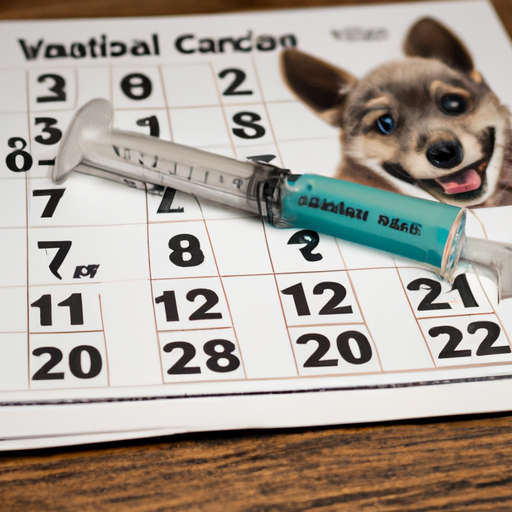As a caregiver, you want the best for your furry friend. You’re the one who nurtures them, feeds them, and makes sure they’re in the best health possible. One essential aspect of canine health care is ensuring they receive their vaccinations on time. This article will delve into detail about the frequency and importance of these vaccinations.
Understanding Vaccinations
You, as a caregiver, understand the importance of protection. Vaccinations are like a protective shield, preventing your dog from succumbing to various diseases. They work by stimulating the immune system to produce a response against certain diseases. This way, if your dog is ever exposed to the disease, their immune system will be ready to fight it.
Commonly vaccinated diseases include:
- Rabies
- Distemper
- Parvovirus
- Hepatitis
When Should Your Dog Be Vaccinated?
Vaccination schedules can vary based on your dog’s age, medical history, environment, lifestyle, and the vaccines used. However, a general timeline is as follows:
- 6-8 weeks: Distemper, parvovirus
- 10-12 weeks: DHPP (vaccines for distemper, adenovirus [hepatitis], parainfluenza, and parvovirus)
- 16-18 weeks: DHPP, rabies
- Every 1-2 years: DHPP
- Every 1-3 years: Rabies (as required by law)
Understanding the Risks of Vaccinations
Like any medical procedure, vaccinations carry some risk. Most dogs do not have any adverse reactions, but it’s crucial to be aware of potential side effects. These can range from mild (such as soreness at the injection site, fever, and decreased appetite) to severe (such as allergic reactions).
The Importance of Regular Vet Check-ups
Regular vet check-ups are an integral part of ensuring your dog’s vaccines are up-to-date. Your vet can provide a personalised vaccination schedule based on your dog’s specific needs. They can also monitor your dog for any adverse reactions post-vaccination.
| Importance | Description |
|---|---|
| Personalised care | Each dog is different and may require different vaccination schedules |
| Health monitoring | Regular check-ups help monitor any changes in your dog’s health |
| Early detection | Regular visits to the vet can help detect diseases early |
FAQs
Q: Can I skip my dog’s vaccinations if they’re always indoors?
A: No, some diseases can be airborne or spread through pests. It’s best to vaccinate regardless of your dog’s lifestyle.
Q: Are there natural alternatives to vaccinations?
A: There are no proven natural alternatives that provide the same level of protection as vaccinations.
Q: My dog is old. Does he still need to be vaccinated?
A: Yes, older dogs need protection from diseases, too. Your vet can advise on the best course of action.
Q: Can vaccinations make my dog sick?
A: Some dogs may experience mild side effects, but serious illnesses are rare. Consult your vet if you have concerns.
Remember, you’re not just a caregiver; you’re a protector, a guide, a companion. By ensuring your dog gets vaccinated regularly, you’re giving them the chance to live a long, healthy, and happy life.



